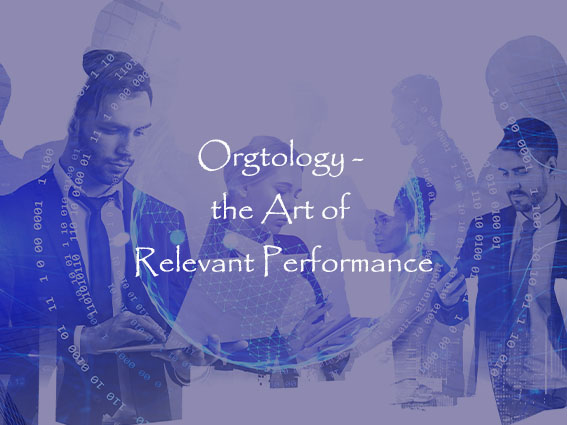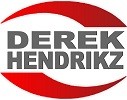"What makes us different, and in which ways are we the same?
What incites our conflicts, for there are so many to blame...
Derek Hendrikz: 2013
I want to be me yet cannot survive without we...
But what then is left of me if I must crucify myself unto a collective we?
Thus, the question remains - who am I and who are we?
The basic assumption on Theory Ex
If identity distinct us from everyone and everything else, then it is what defines us. One can only define something unique.
Human identity is a term that refers to variety and difference between people. These differences could include race, gender, age, intelligence, skills, qualifications, physical ability, religion, sexual orientation, general thinking, values, beliefs, etc. It can be any dimension of human variation. In so, identity is the boundary that define and differentiate subsystems from one another.
The "E" in Theory Ex stands for "Entity". It works with what makes us unique and different. In so, it also works with what causes conflict. Without uniqueness, there will be no conflict, which means there will be no such thing as discrimination. Difference makes life and progress possible. Without definition, there is no difference, without which there will be no conflict. Without conflict, there will be no problems, without which there will be no growth. Without growth, there will be no intelligence.
Uniqueness brings disruption, which induces conflict. To understand the "X-Factor" means understanding the nature of conflict. It helps us to know what the boundaries are and to which extent we can push them.
To be or not to be?
"Know the nature of your demons and feed them no more.
For what you know, is that what you feed will grow…"
Derek Hendrikz: 2014
Metamorphosis, a process whereby one state passes to another, describes transformation best. To be born and to grow old is a process of constant transformation. It begins and ends in complete change. Some of this growth is in our hands, but most of it is not. Thus, to be or not to be is partly mandatory and partly choice. E.g., I am a 51-year-old European male. My physiology is not a choice. But I can choose how to cognitively define my world.
Identity is thus a combination of one's physical nature and one's mental state. You are a duality of body and mind. I.e., body and mind create an equilibrium that interdependently makes one whole.
Challenge, deviation, or dislike of one's identity will cause disruption to one's "world". This creates conflict, which (as explained) mostly leads to increased intelligence. Thus, for growth, one must sometimes "be" and sometimes refuse "to be".
Change is the revolutionary rethinking of a construct. It is both an idea and an end-result; the first and final creation. For people to change, they must rethink their identity. Their intelligence and paradigm will be most influential in doing so. Transformation is the evolutionary process of realizing and internalizing the idea of change to the result of change. Change is a realisation, and transformation is an internalisation. When people decide to change and then succeed in transforming, they adjust their identity.
The reason people change is that they can no longer continue with what was. It is conflict of awareness that brings new thinking. Change is revolutionary whilst transformation is evolutionary. Leaders drive change whilst managers ensure transformation. Jointly, they help an entity to perform and stay relevant. Thus, they maintain and adjust an identity. That is why identity is the biggest asset to any organisation. It is the only thing that others cannot replicate. E.g., if one could buy the Apple company, one would pay more for the name "Apple" than for its assets. Thus, "What to be, or not to be?" is an important question to Org.
Identity and its manifestations
So far, I have discussed mind and body. Mind is something one can change, and body is something that one cannot. What I cannot change is my fixed identity. Age, height, gender, race, ethnicity, etc. By that I do not mean that they cannot change. It means that I have little control over it because its biological, e.g., age. To change biology takes a lot of effort and science, e.g., gender change.
A second identity is to be part of a collective. Here we split chosen from mandatory collective identities. The groups, teams, and organisations that we associate with are choices. Our culture, ethnic group, country of origin, and family members are not. To understand the collective choices that people make is to understand their identity. This will help us grasp the conflict between teams, groups, and organisations. In turn, this will show us the tolerance thresholds that systems have.
A third group are hidden identities. This is the part of who we are that we keep to ourselves. It could include physical status, disease, sexual preference, secret desires, and so on. To really understand a person, one must grasp the cause and effect of his/her hidden identities.
Needless to say, one must first know what these hidden identities are. That is a challenging task because we share distinct parts of us with different people. E.g., a loyal husband might talk to his work mates about how sexy the new temporary worker girl is. Yet, it is unlikely that he will tell his wife about the hot new temp. Not because his is unfaithful, but because his intuition tells him to keep quiet about that. I believe that his intuition is correct. In so, you will share things with your spouse that you will not share with others, or with your brother that you will not share with your wife. Nothing wrong with that. But to know who people are is to know the effect that they will have on Org. This decreases the risk of a dysfunctional X-Factor. Our aim is to grasp hidden identities, not to judge them.
The Culture Forming Process
Culture is an organised system of shared -meanings, -beliefs, -customs, -attitudes, and -social behaviour that identifies a group.
Culture starts with a need to survive. Resources are mostly limited and not easy to come by. Often one must confront danger in this pursuit. This was especially true for the cave man. Their ability to hunt in teams increased their chances of survival. Humans; orca's; chimpanzees; lions; etc., are examples of "super" predators who have mastered this art. In nature it is beneficial to work in teams because it makes it easier to get food. It also helps to curb external threats. The anxiety of not being able to survive individually, thus moves people to be part of teams. This is also true of modern society. We join companies so that we can get salaries and pay bills. Yet, unlike nature, we can choose how we survive. In so, we have the choice to be useful in a myriad of ways. The side effect of this is that we must now also deal with psychological survival. That is mostly why people join social groups, sport clubs, etc.
But being part of a group creates new anxiety. This is the fear that the group might break up. To the individual, the group holds his/her safety and survival. There is also the possibility that the group can expel one. Even worse, another group might absorb or control this group. To contain these anxieties, groups develop common purpose and rules for behaviour.
It seems every time one tries to contain an anxiety, a new one rises. In so, the anxiety to survive will create shared identity, which will cause a fear of group annihilation, etc. Often, groups try to preserve their uniqueness through symbols and rituals. This gives a feeling of oneness and belonging. As this process internalises, culture is born.
Survival is both physical and psychological. E.g., a group who gossips finds fault in others so that they can unconsciously "export" their own flaws. This is psychological survival.
The discrimination process
Discrimination is the act of excluding a person or group from gaining a specific privilege, or from being part of a group.
Discrimination is about power. Resources are limited, which means where groups share a resource pool, they threaten each other.
Discrimination starts when we categorise. E.g., men and women; black, white, and Asian; heterosexual, bisexual and homosexual; etc. We do this to simplify difference, and it holds no harm. It is functional and makes life easy.
When we begin to make assumptions about categories, the evil begins. Assumptions are mostly motivated by a group's own anxieties. E.g., one often hears people gossip about other people who are overweight. Unconsciously, such gossip is often motivated by an anxiety to not be the worst-case scenario. The assumption that others are worse-off gives hope.
It is human nature to assert one's own assumptions. We want to prove it as true. In so, we must find evidence. Often this is not possible, so these assumptions then become beliefs. A belief is a non-negotiable truth that one holds about something. Mostly we defend these "truths" without proof or evidence. In so, we stereotype. E.g., we "now know" that woman are bad drivers. That is a belief without evidence. When we stereotype, we uphold our beliefs, which mostly drives oversimplified and one-sided "realities". Stereotyping attaches distinctive labels to things and people, such as, "good" or "bad"; "strong" or "weak"; "more" or "less", etc.
As we stereotype, we inevitably create the need to "deal with" the other group. This is prejudice. It happens when we openly promote the exclusion or even extinction of other groups. Prejudice is a fixed generalisation, mostly without proof.
Prejudice mostly ends in discrimination. This is a point where one group purposely excludes another group. There are several ways to discriminate, e.g., sexism; racism; ageism; etc. The aim of discrimination is mostly to hold on to some form of power. The anxiety of losing control over resources, often provokes discrimination.
The evil of Discrimination is not the discrimination itself, but in the purpose of it. All species on this planet has evolved to exclude and include. Discrimination is part of life, but we can be just and fair when we must do so.
Conclusion
"Difference is a macro reality and a quantum illusion.
Sameness is a macro illusion and a quantum truth."
© Derek Hendrikz 2013
We are one and many at the same time. In so, I am a person and part of people. When Org creates teams, it is made of diverse people. By understanding how groups behave, we can turn them into teams. As with cavemen, relevant and performing teams bring competitive advantage.
To deal with workplace discrimination will take some effort. To discriminate is natural. Its about securing resources and power. In my experience, the antidote to discriminatory practice is a strong anti-prejudice value system. It is hard to curb discrimination overtly and directly. It is an abstract concept that makes the eco system go round. The only way to deal with it is to bind teams through purpose, values, and intent. Of these, the hardest part is values because it only works if internalised.
Supporters want their teams to win, citizens want their countries to succeed, cultures want to keep their rituals, etc. Companies want their brands to be household names, celebrities want to be immortal, employees want to be remembered, etc. It is all about identity - about being unique. The effect of that is conflict and discrimination.
The more we make the same, the less we are unique. Less uniqueness means less problems. That means less intelligence needed. That is the dilemma of identity. We want uniqueness and equality at the same time. From an orgtology perspective it is not one or the other. Its about finding and managing equilibrium.



